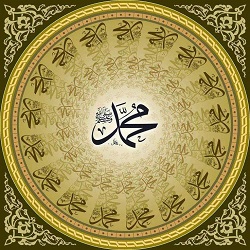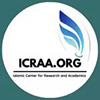
Let’s us have a look at a report mentioned by a number of sites, mostly those critical of Islam, quoting al-Shifa of Qadi ‘Iyad:
The Messenger of Allah used to have a talisman against the evil eye..Khadija asked him: “Shall I send someone to you to make a talisman for you?” He replied, “No, not now.”
Qadi Iyad (d. 544/1149) records it as:
وقد روى ابن إسحاق عن شيوخه أن رسول الله صلى الله عليه وسلم كان يرقى بمكة من العين قبل أن ينزل عليه فلما نزل عليه القرآن أصابه نحو ما كان يصيبه فقالت له خديجة أوجه إليك من يرقيك قال أما الآن فلا
Ibn Ishaq has related on the authority of his teachers that the Messenger of Allah (ﷺ) used to be incanted upon for the effects of evil eye at Makkah before he received the revelation. When the Qur’an was revealed to him he experienced things similar to what he used to experience earlier. Khadija, thus, said to him, ‘Shall I get someone to chant incantations upon you.’ The Prophet (ﷺ) said, ‘No! Not anymore.’[1]
The report is not authentic. Ibn Ishaq (80/699 – 151/768) reported it from his teachers who are not mentioned and, therefore, we cannot say whether they were trustworthy or otherwise and as to who they got this information about the Prophet (ﷺ) — who had died in 11/632 — from.
The report is not found in the available section of Ibn Ishaq’s work. It is likewise not found in Ibn Hisham’s better known edition of Ibn Ishaq work on the life of the Prophet (ﷺ).
A few later scholars such as al-Maqrizi (d. 845/1441)[2] and ‘Ali b. Ibrahim al-Halabi (d. 1044/1635)[3] have quoted it the same way as Qadi ‘Iyad i.e. without mentioning any of the authorities of Ibn Ishaq or attributing it to any source other than Ibn Ishaq. al-Suyuti (d. 911/1505) too in his Manahil al-Safa fi Takhrij Ahadith al-Shifa, a work providing citations for Qadi ‘Iyad’s work, fails to give any other source for this.[4]
In view of the above details the report is not tenable in terms of narrative authority.
Content wise, the report only proves the Prophet (ﷺ) underwent unusual experiences both before and after he first received the revelation. In the absence of revelation he and those who cared for him must have considered it something like evil-eye and resorted to whatever they thought was helpful in such a situation.
It, however, does not positively prove the Prophet (ﷺ) believed in the effectiveness of those incantations. Many a times an effected person lets people around him do things they believe might be of some help.
What it certainly proves, however, is the truth of the Prophet Muhammad’s (ﷺ) prophethood. If established in terms of authenticity, this report goes with other reports about the Prophet’s pre-revelation experiences regarding which he honestly mentioned his feelings. It was only after getting that revelation, his own sayings prove, that he realized what he had been going through, which is why in this report he told Khadija “No! Not anymore.”
Only a truthful and honest person has the moral strength to put things so bluntly.
References:
[1] Al-Yahsubi, Qadi ‘Iyad, Al-Shifa bi Ta’rif Huquq Mustafa, (Beirut: Dar al-Fekr, 1988) Vol.2, 103
[2] Al-Maqrizi, Ahmad bin ‘Ali, Imta’ al-Asma’, (Beirut: Dar al-Kotob al-Ilmiya, 1999) Vol.11, 197
[3] al-Halabi, ‘Ali bin Ibrahim, Insan al-‘Uyun – Sirat al-Halabiyya, (Beirut: Dar al-Kotob al-‘Ilmiyya, 1427 AH) Vol.1, 360
[4] Al-Suyuti, Jalal al-Din, Manahil al-Safa fi Takhrij Ahadith al-Shifa, (Beirut: Dar al-Jinan, 1988) 216 (No. 1166)
